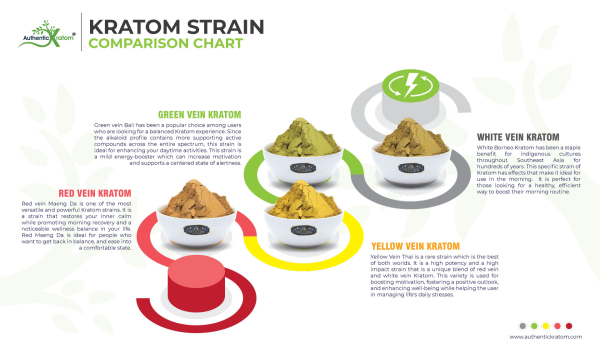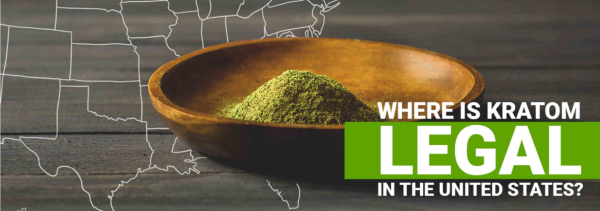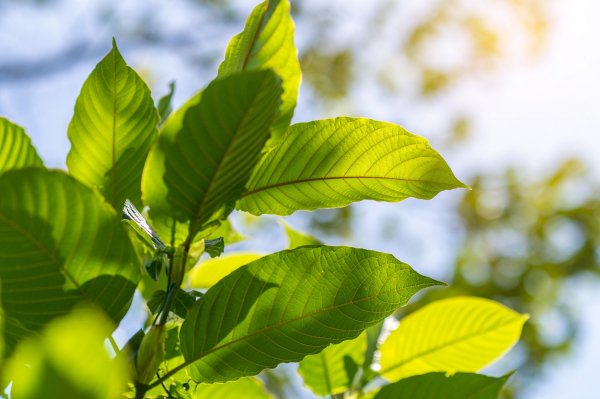Is Kratom Legal in North Carolina?


TL;DR: As of April 2025, kratom is legal in North Carolina for people aged 18 and over. However, pending legislation — House Bill 468 — proposes stricter regulations, including raising the minimum age to 21 and implementing product safety standards.
Disclaimer: This article is for informational purposes only and should not be taken as legal or medical advice. Always check local laws or consult a legal expert before making decisions related to kratom.
Kratom's legal status in the United States is complex and varies by state. If you're wondering, "Is kratom legal in North Carolina?" or even "Is there a kratom ban on the horizon?" — you're not alone.
With legislation brewing and debates heating up at both the state and local levels, North Carolina’s stance on kratom is evolving fast.
Let’s take a closer look at the current laws, potential changes, and what they mean for residents of the Tar Heel State.
Quick Facts
- Kratom is legal in North Carolina for adults aged 18 and older.
- There’s no statewide kratom ban, but local concerns are increasing.
- No kratom-specific testing or labeling rules are currently in place.
- Some local counties, like Dare County, have explored resolutions to restrict kratom sales.
- House Bill 468, introduced in 2025, could raise the legal age to 21 and introduce product safety regulations.
The Bigger Picture: Kratom Laws Across the U.S.
Kratom occupies a strange space in American law. It’s not banned at the federal level, but the DEA once attempted to classify it as a Schedule I substance — the same category as heroin. After public pushback in 2016, that effort failed, and kratom has since remained in a legal gray area.
What does that mean in practice? Every state — and sometimes even individual counties — gets to decide for themselves. Some have banned kratom altogether. Others have passed consumer protection acts. And many, like North Carolina, are somewhere in between.
Is Kratom Legal in North Carolina?
Yes, kratom is legal in North Carolina — for now.
As of April 2025, adults aged 18 and up can buy, possess, and use kratom legally. The state doesn’t classify mitragynine or 7-hydroxymitragynine (the two primary active compounds in kratom) as controlled substances.
However, there are no regulations in place to control how kratom is labeled, sold, or tested. That means while you can legally buy it, there's little oversight to ensure the product you're getting is pure, accurately dosed, or safely processed.
Major cities where kratom is legal in North Carolina include:
- Raleigh
- Charlotte
- Greensboro
- Asheville
- Wilmington
Does North Carolina Regulate Kratom?
Sort of — but not in the way other states with more developed kratom laws do.
North Carolina’s first attempt to regulate kratom actually started nearly a decade ago. Back in 2015, lawmakers introduced Senate Bill 830, which aimed to ban kratom outright by adding its active compounds to the state’s controlled substances list.
That move sparked an immediate backlash from kratom advocacy groups like the American Kratom Association, and the bill ultimately failed. Still, it was an early sign that kratom was on the radar in North Carolina.
A year later, in 2016, the state passed House Bill 747, which set the minimum legal age for purchasing kratom at 18. And that’s where things have stayed ever since — no product testing rules, no labeling requirements, and no quality control standards.
So while North Carolina does regulate kratom sales in a very limited way, it hasn’t taken the step that over a dozen other states have: adopting a Kratom Consumer Protection Act (KCPA).
What Is the KCPA?
The KCPA is a regulatory framework that’s been popping up across the country. It keeps kratom legal, but also puts rules in place to protect consumers. These usually include:
- Age requirements (typically 18+ or 21+).
- Product labeling that discloses ingredients and alkaloid content.
- Bans on synthetic additives or adulterated products.
- Required third-party lab testing to ensure purity.
Kratom advocates generally support these types of laws — not because they want more red tape, but because smart regulation helps keep kratom legal, accessible, and safe.
As of now, North Carolina has only addressed the age limit. But that could change soon.
A New Bill On the Horizon: House Bill 468
In March 2025, North Carolina lawmakers introduced House Bill 468 — legislation that would put stricter guidelines around kratom sales statewide.
But this isn’t a ban. Instead, it’s part of a growing trend: regulating kratom in the same way we regulate alcohol or tobacco — with age limits, safety rules, and clearer product labeling.
Here’s what the House Bill 468 proposes:
- Raise the legal age for kratom purchase and possession from 18 to 21.
- Mandate lab testing for kratom products to ensure purity and safety.
- Require clear labels listing alkaloid content, ingredients, and usage warnings.
- Ban certain forms of kratom, like those intended for combustion or injection.
- License vendors who sell kratom, including compliance checks.
- Impose penalties of up to $2,000 for violations.
As of now, the bill is still in committee — but if passed, it would go into effect in July 2026, giving businesses time to adapt.
Important Note
This bill is not law yet. Kratom remains legal for adults 18+ in North Carolina, but the proposed changes show that lawmakers are paying attention — especially when it comes to product safety.
Local Pushback: What’s Happening in Dare County?
Legislation isn’t the only source of potential change. In late 2024, Dare County Commissioner Ervin Bateman proposed a resolution calling for a North Carolina kratom ban. While it hasn't advanced into actual law, the proposal stirred up local discussions around kratom safety, especially in tourist-heavy coastal areas.
Although counties in North Carolina can’t ban kratom on their own, resolutions like these show that public health concerns are prompting officials to speak up.
Good to Know
Local governments in North Carolina can advocate for bans — but statewide action is needed to enact them. Still, these local efforts may shape how lawmakers vote on broader kratom regulations.
Wrap-Up
Kratom is legal in North Carolina in 2025, but the rules might be changing.
Lawmakers are weighing new regulations through House Bill 468, and local governments are becoming more vocal about safety concerns. For now, the plant remains accessible to adults 18 and over — but if the bill passes, kratom could soon be regulated more like alcohol or tobacco.
If you’re a consumer or just curious about kratom’s future in the Tar Heel State, buy kratom products from trusted vendors and stay informed. Because while kratom isn’t illegal in North Carolina yet, it may not stay that way forever — at least not without new rules.
Disclaimer: This article is for informational purposes only and is not legal or medical advice. Kratom laws are subject to change. Always verify local regulations or speak with a qualified professional.
References:
About Authentic Kratom
Authentic Kratom is your trusted source for premium, lab-tested kratom, proudly serving customers across the U.S. from our base in San Fernando Valley.
Founded in 2013, we set out to redefine the kratom experience—prioritizing quality, transparency, and customer well-being.
- Direct-from-source authenticity – Every strain is meticulously sourced from Indonesia’s finest kratom farms. If we can’t verify its purity, we won’t sell it.
- Uncompromising quality control – Lab-tested for potency, safety, and consistency, each batch comes with full transparency and batch numbers.
- Customer-first approach – Same-day shipping, free standard shipping, and top-tier customer service ensure a seamless experience.
- Industry leadership – As an American Kratom Association member, we adhere to strict GMP standards, advocating for kratom safety and education.
- A brand you can trust – With over 4,000 verified reviews, our reputation is built on real results and customer satisfaction.
At Authentic Kratom, we believe everyone deserves safe, high-quality kratom without the guesswork. Experience the difference with us—where quality, care, and integrity come first.









